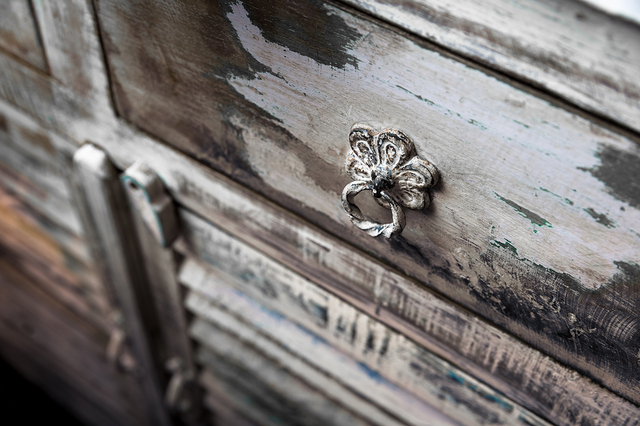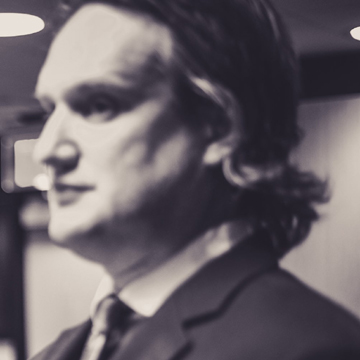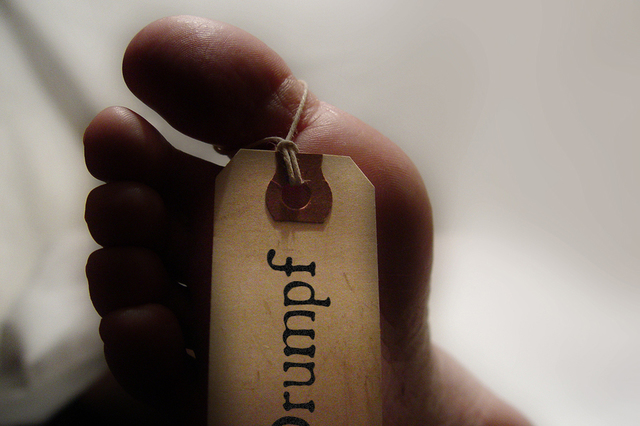An agreement between rival yet tightly bound siblings casts eerie reverberations through one’s late-life pursuit of love.

The balcony door slid open, the oxygen tank clinked over the metal transom. A gossamer cloud of smoke ringed Roni’s head outside in the open air. I never understood why she insisted on continuing that charade. I’d told her to feel free to smoke in the apartment whenever she liked. Perhaps the oxygen tank made her feel awkward. Maybe the notion that she was now surely committing a gradually accelerating suicide gave her unfamiliar pangs of shame. Veronica had always seemed to be immune to shame but then I guess death’s approach makes us all strangers to ourselves.
Decades before, she’d seduced and stolen my fiancée, Nancy. Though we never discussed the matter, I expect their affair began shortly after Nancy and I had announced our engagement. Within a week, the wedding was off. Nancy told me she was still in the process of discovering herself and did not think marriage was the right thing for her at that time of her life. Naturally Veronica, the great explorer, the spelunker extraordinaire of both the human body and soul, was there to help further this discovery process.
For a time, I schemed to take revenge on my sister by winning Nancy back. One among the innumerable plans that I’ve failed to see through. Roni quit Nancy soon enough anyway. My lovely sister had always been quick to bore.
I wasn’t sure if she was ready to discuss my latest plan. Returning from the balcony, she sat down across from me, curling herself up on the divan, the wheels of that infernal tank squeaking. Feeling bold since I’d just poured myself a third bourbon, I came right out and asked her if she would do something for me after she died. She did not laugh that Roni laugh, which had been directed at me my entire life, a chortling snort that cut me lower and lower until I felt but a child. Instead, she seemed to consider the weight of this question and perhaps tried to sense what might follow. She adjusted the hose beneath her nose and looked me in the eye, daring me to commit the most egregious of trespasses—wasting her time.
This made me pause to test my words in my head. Without being totally certain of them, I told her I needed to know what happened to us once we left this world. She threw her head back, rather dramatically, looking towards the ceiling and shaking her head. I explained to her that if it was possible to visit me as a spirit after her death, she should come to me in a dream and tell me about the afterlife. We would agree on a password, one that we could both remember, which she could then use to indicate the visitation was actually her.
To my surprise, my sister, who’d been a fervent atheist for as long as I could remember, took my suggestion quite seriously. After a period of contemplation, Roni declared that my plan had a major flaw. If she did come to me in a dream, she surmised, I couldn’t be sure if it was her spirit or a figment of my imagination using the password which my mind’s ear would’ve been so greedy to hear. She suggested coming up with the word herself, writing it down and then locking it away in the front drawer of the old rolltop desk that had been covered by a sheet since Mother’s death. If she did then appear to me in a dream so that we might conduct “a rather wildly implausible conversation,” she would be sure to use the password. I would then only need to check the piece of paper to verify that it had been her. She even made me get the key and open the drawer to verify it was empty so that I might not confuse her password to the afterlife with an admonishing note Mother had scribbled down for the cleaning lady but lacked the nerve to give to her.
I wasn’t sure how serious she was. What I’d proposed seemed like exactly the kind of time-wasting superstition she’d railed against often enough in her life, and, since within days Roni’s condition deteriorated rapidly, I could not be certain if she ever followed up on her offer. The thought did flicker through my mind the morning she died that maybe some wonderfully terrible trick lay waiting for me in that drawer, a last joke from a big sister who was always so anxious to teach me lessons. It was sort of cruelty that I always found strange comfort in.
Over the years we’d endured our share of failed relationships, which might just have been failed attempts to grow up and join the adult world, and we always circled back to the comfort of our sibling bond. I probably forgave Roni for the whole Nancy fiasco because her dropping Nancy so quickly was a sign to me that I’d been chosen. She hadn’t run off with Nancy to set up house, as I’d been planning to do, but returned instead to our shared domicile to live again with me as nature’s cruelest joke—brother and sister roommates.
In the weeks after Roni’s death, I was exhaustion’s prisoner as much as grief’s. I slept but could hardly recall what, if anything, had gone on in the darkened theater of my mind. As it turned out, my scheme had a bigger flaw even than the one Roni had pointed out, as I never had been able to remember my dreams. I was certain I had them, often waking with the vague sense of some surreal drama being worked out on the edge of my consciousness, but was never able to recall details or characters from them.
Daydreaming was another matter, however, and now I had countless waking hours to indulge myself. I’d often lie in bed until well into the afternoon, trying to imagine a future for myself completely on my own. In this manner, my wandering mind began more and more to find its way improbably back to Nancy. With Roni gone and loneliness stalking me even more closely than death, she made as much sense as any passenger to be invited aboard my train of thought.
Eventually I looked her up on the computer. Finding her proved easy, much easier than I would’ve thought. She had always just been sitting there, waiting for me to find her. It seemed wrong somehow that this piece of my past should be so easy to rediscover. I suppose that’s one of the advantages (or, probably more often, curses) of our age.
Ostensibly, my first call to her was about Veronica’s passing. We were both well past the age when getting romantically entangled would seem anything but ridiculous. However, we might still provide each other with companionship, a thing that at our age was as necessary a luxury as sex had once been. We’d known each other well, so much of that unpleasant “getting to know you” business could surely be dispensed with. True enough, there was an interval of decades since we’d last seen each other, but I hadn’t changed much since then and was fairly certain she couldn’t have either. People really don’t after a certain age, say twenty-seven, twenty-eight. We may make some money, buy some things, maybe even have children, but at our core we are who we were and seldom ever become the people we once thought we could be.
She took the news about Roni hard, gasping before a long, heartbroken pause. When finally she spoke and asked how I was holding up, it had the feel of an afterthought. I told her I was bearing up okay, making sure my voice was caked with emotion as though I might be about to cry or had just finished doing so. She asked if I still lived outside the city and lamented having moved so far away.
We reminisced as much as we could without coming close to touching on the bitter dissolution of our relationship, concentrating on the city and the places we went during love’s first flowering. I was struck by how vividly she remembered the Village—a place where Roni had always felt more at home than I. As the call was winding down, Nancy suggested meeting her in the city. I couldn’t believe my luck, as I’d failed at working up sufficient nerve to suggest any such thing.
Since most of the places we used to know were probably gone, she volunteered to look up one that would suit us. What could I do but agree? For the first time since my sister had passed, I began to wonder if the future had to be as lonely as I feared.
Arriving in Manhattan, I found myself caught in the terrible crush of human life that makes New York the very monster outsiders look upon with such fearful admiration. I stumbled upon our meeting place quite by chance, just as I was trying to read the directions I’d copied down from the internet. The Clock Stop Diner was full of tourists with big bags, most of whom appeared to be trying and failing to not look so bewildered by the city. My feeling of kinship with them was immediate.
The tiny space was laid out in a U shape, with a counter on one side and booths ringing the outer edge. Since I was early, I took up a spot which afforded me a clear view of the door. After ordering a coffee and checking my watch, I worried Nancy was going to stand me up.
I’d taken no more than one sip of coffee, maybe two, when she appeared. Looking harried, she searched the restaurant with a desperate look on her face that I found touching. I waved, standing up in the booth, banging my knee on the edge of the table. She came over, smiling that half-ashamed smile of hers. She had wrinkles and age spots and all the rest, as well as having put on considerable weight, but seeing through all that to the woman I’d once loved proved easy. Trite as it might sound, she had the same kind eyes I remembered, the sort reserved for characters on greeting cards and desperate animals at the pound.
She ordered coffee. We attempted small talk. If I were the type who cracked jokes, I would’ve tried one. Happily, I could rely on Nancy’s penchant for getting to the point without the need of any graceful segue to end our misery.
“Did she leave anything for me?” she asked.
“Leave anything? Our Veronica? Like what? Money you mean? I’m sorry to say the family fortune isn’t what it once was.”
“No, not money. Like a note or a message to pass along. I know Veronica wasn’t the sentimental type, but I hoped she might have saved something of herself for me, perhaps a memory to share.”
“No, Nancy, I’m sorry. She wasn’t one to reminisce. Her final days were largely about struggle. And even had she the energy, as you said, she wasn’t one to get lost in sentiment.”
“I know, I know. I just thought,” Nancy said, tears filling her eyes. “I just always thought I’d see her again. I’m sorry. Maybe you don’t want to talk about her.”
“Nancy,” I said, taking my chance to reach across the table and touch her hand. To my shock, she took mine. “I want to talk to you. I want to talk about life. We still have some left in us, don’t we?”
“Oh, Charles. You’re still such a charming boy.”
From there we found our way. We talked about the good times we’d had. We managed to paint over the bad parts of the past and even laughed a little before agreeing to meet again. As I went home, I thought about her asking, rather ludicrously, if Roni had left anything for her. Veronica certainly was not the sentimental type. Still, I had to check.
I got the desk key from the kitchen. The drawer was empty save for one square of paper, placed in the center, held there by a piece of tape. My sister must’ve used what remaining strength her final days allowed to fold it into such a crisp square, its corners sharp enough to wound. As I unfolded it, my hands began to shake. Only once I was in the process of putting our careful plan at risk did I see how much I still had at stake among the living. It wouldn’t have been above my sister to leave instructions for me to contact Nancy in place of some foolish password. Indeed, it had been hard to believe such a fervent atheist would agree so easily to my plan. The idea of reading words my sister intended for Nancy filled me with the desire for a drink. Dropping the half-folded note, I turned to the sidebar.
I sipped at first but soon found my glass empty. The room suddenly seemed small and stuffy. I needed a breath of fresh air. I took the note and my drink to the balcony. I was transferring the note from one hand to the other and opening the sliding glass door when it slipped from my grasp and fluttered away. My sister’s last written word was now on the wind. I began to calm down as I watched it drift off in the breeze. Whatever her words were, they could never hurt me again.
Over the next few days, Nancy and I talked on the phone frequently. She was more open and human than I ever remembered her being. In fact, it was she who seemed anxious to meet again and decided we should do so as soon as possible.
We settled on another diner in midtown, this time closer to the bus station. The place was bright and blinding white—the counters, the booths, the floor, the waitstaff’s uniforms, everything. I took a seat by the door and was handed a menu. It too was white save for the illustration on the cover, which was of the façade of the diner itself. Then I noticed, sitting in the window by the door, the artist had drawn a man who looked much like me. I lifted my glasses and held the menu close to my face. Remarkably, it was me—the face I encountered each morning in the mirror reproduced perfectly in graphite. I looked up from it to find Veronica also in white.
“I guess Nancy stood us up,” she said and took a seat without my inviting her to sit down.
“She has a habit of running late,” I said, shielding myself with the menu.
“Charles, she’s not coming. Don’t you know what this is?” She patted my hand and offered a smug, slightly pitying smile. “The rolltop desk. The piece of paper you lost. Learning nothing from it.”
“The rolltop desk,” I said. “You’ve come to tell me about death.”
“Try to keep up, Charlie,” she snorted. “You probably won’t remember what we’ve talked about when you wake up.”
“Remember what?”
“The desk,” she said, gesturing in the air. “The password, so you can be sure it’s me.”
“What’s the password?”
“Charles, my little brother, my lovely boy, I wish I could explain nothing to you. Though I dare say, my password was predictive in that way.”
“Nothing,” I repeated, extending the word nervously as though it were an incantation that might light the way for me.
“As I said, my password was, in a way, predictive.” She lit a new cigarette off the one that was almost out.
“Your password in the desk,” I said.
No sooner had I uttered these words than I awoke, my chest tight as though caught between two hot vises. Rushing to the living room, I opened the drawer of the desk. Once again, a crisp square of paper with corners that looked sharp enough to wound was taped there to the drawer. I hesitated to pick it up. Instead, I poured myself a bourbon.
It may have been the effect of the drink but I’d never before felt the presence of anything unearthly before that moment. It was as though the air had grown legs and was crawling on my skin. My hands shook. I poured another drink, placing the note down on the coffee table.
It felt as though the earth would open up and swallow me if I could only wait long enough. My heart galloped at a bone-shaking pace. I could hear my pulse in my ears. Fearing I might have a heart attack before finding out what was written there, I unfolded the paper.
It was blank.
Copyright © 2019 by Jason Graff.



